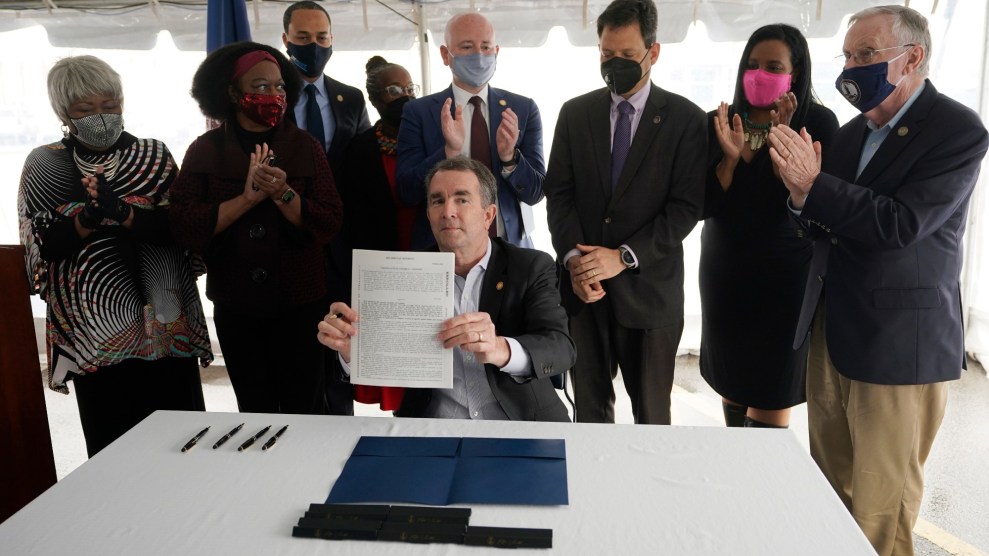
Steve Helber/AP
Virginia just became the first Southern state to repeal the death penalty. On Wednesday, Democratic Gov. Ralph Northam signed legislation into law, bringing the total number of states to abolish capital punishment to 23.
“It is the moral thing to do to end the death penalty in the Commonwealth of Virginia,” Northam said at the signing ceremony.
Virginia, the formal capital of the Confederacy, has carried out 1,390 executions since 1608, more than any other state. This extended well into the modern era. After the US Supreme Court ruled that executions were again constitutional in 1976, the state executed 113 people, the most of any state except Texas.
The last person to be executed in Virginia was William Morva in 2017 for the murders of Eric Sutphin and Derrick McFarland. Morva’s lawyers had argued that his mental illness made him ineligible for execution. The two remaining people on Virginia’s death row will have their sentences automatically converted to life without the possibility of parole—a punishment that is beset with many of the same issues as capitol punishment.
Death penalty opponents have long pointed to capital punishment’s racial bias as reasons to abolish it. Even as its use has declined in recent years, those biases persist—or have gotten worse. And then there is the question of innocence. Since 1973, 185 people have been exonerated from death row. Studies show that at least 4 percent of people on death row are innocent of the crimes they’ve been convicted of. The death penalty is also expensive, costing some states millions of dollars.
Even as proponents of capital punishment have argued that executions are justice for the victims, the loved ones of those very victims have pushed back. “There are many of us, and we have continually spoken out,” Rachel Sutphin, whose father was killed by Morva, told NPR. “This is not what we want.” Among the public, the death penalty’s popularity is waning. Today, 55 percent of Americans favor the death penalty, down from 80 percent in the 1990s. President Joe Biden, once a proponent of capital punishment, is now the first president to oppose the practice.
Gov. Northam recognized the historic nature of the repeal by saying, “This is an important step forward in ensuring that our criminal justice system is fair and equitable to all.”

















